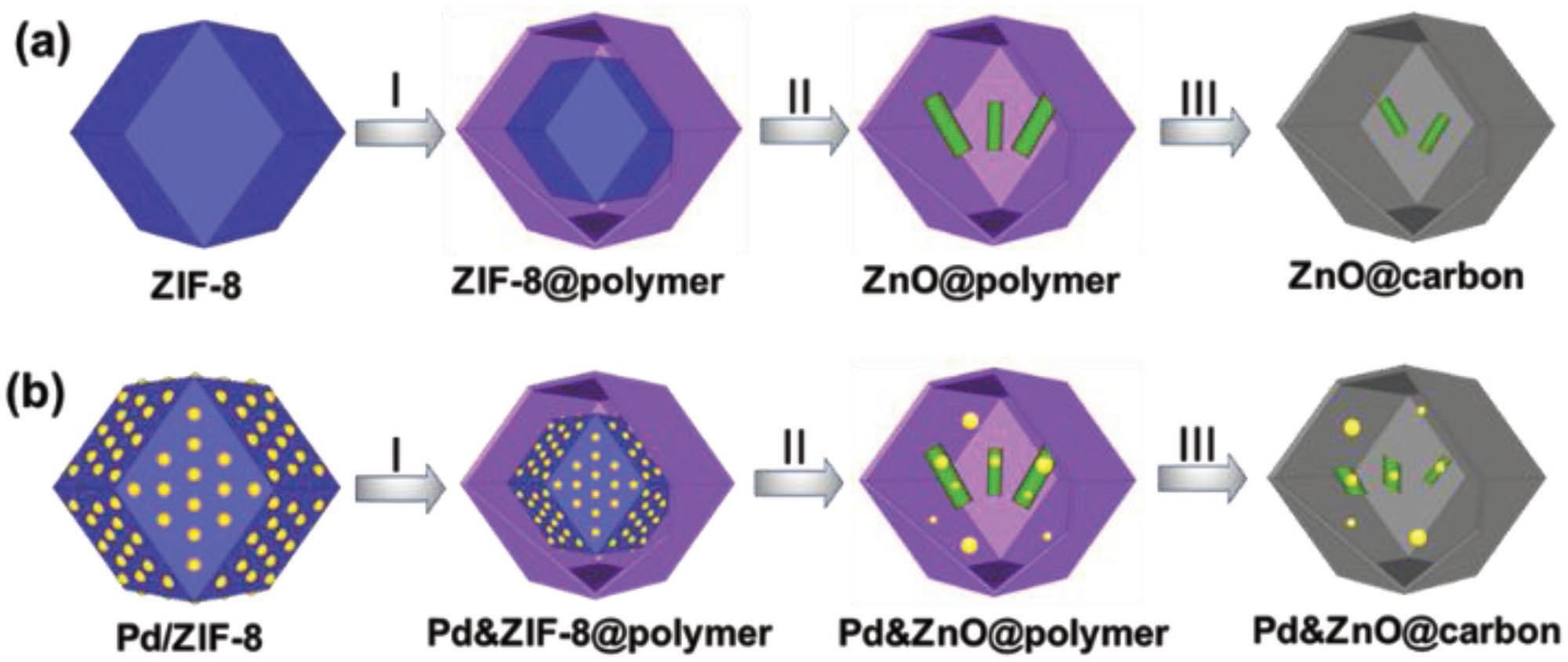Design of multicomponent yolk–shell structures is crucial for the fabrication of micro/nanoreactors for a variety of applications.This work reports the rational design and synthesis of yolk–shell-structured submicroreactors with loaded metal nanoparticles into ZnO–microporous carboncore–shell structures.(Advanced Functional Materials, 2018, 28, 1801737. Cover Paper)

The solvothermal treatment and carbonization process of uniform zeolitic imidazolate framework-8 (ZIF-8)@resin polymer core–shell structures leads to the generation of yolk–shell-structured ZnO@carbon. The synthesis conditions are optimized to track the evolution of ZIF-8 in a confined space of resin polymer as a submicroreactor itself. It is found that nanoribbon evolution occurs via the formation of the intermediate needle-like particles. The Pd&ZnO@carbon submicroreactor is shown to be a highly selective catalyst (selectivity >99%) for hydrogenation of phenylacetylene to phenylethylene. The excellent performance of Pd&ZnO@carbon particles is evidenced by higher conversion and selectivity than that of Pd/ZnO and Pd/C with similar Pd loading. Furthermore, Pd&ZnO@carbon submicroreactors show superior catalytic stability, and no deactivation after 25 h of reaction. The proposed strategy is promising for the design of multifunctional micro/nanoreactors or nanocontainers for construction of artificial cells.